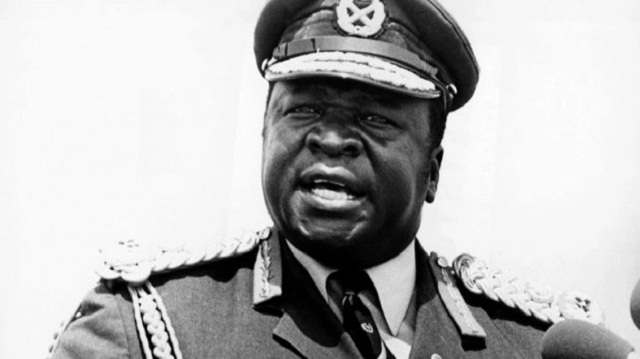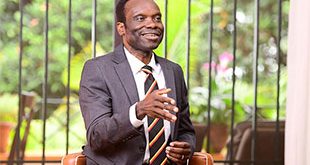
Kampala, Uganda | THE INDEPENDENT | For at least 33 years, February 6 is celebrated annually to mark the day Yoweri Museveni waged a five-year civil war that brought him to power in January 1986. But Tarehe Sita, as the day is popularly known, is linked to another historical event, 53 years ago, that may have given birth to Tarehe Sita. In this second part, minister Sam Odaka and MP John Kakonge try in vain to turn the tide, with only Kakonge eventually opposing the motion. As the motion sails through parliament, Prime Minister Obote returns, and the gun takes over.
Foreign Affairs Minister Sam Odaka and John Kakonge, a specially elected legislator, tried in vain to turn the political tide. In the end, only Kakonge opposed the motion. As the motion sailed through parliament and Amin was sent on leave, Prime Minister Obote returned to Kampala.
Odaka’s Creed
Sam Odaka, foreign affairs minister and Member of Parliament from Tororo, began his submission by hitting at some of his cabinet colleagues whom he accused of treachery. He coined what he called Odaka’s Creed:
“I believe in Government, and in its being quite decent, condoning no corruption, condoning on criminal acts, carrying out its full duties and responsibilities, collectively and justly. I believe that ministers who find the cabinet motto, “One for All and All for One” unacceptable to them, must resign at once from it.”
Odaka was directing his “creed” at ministers Balaki Kirya, Emmanuel Lumu, Mathias Ngobi, Grace Ibingira and George Magezi. This forced Dr Lumu to respond: “Many members of this House asked us to resign quickly, from the Uganda cabinet…Why should we? What is wrong with this motion? It has not censured the Premier, it censured not cabinet, it gives none of you a cause to call for the resignations of some of your ministers who resolved to accept it.”
But Odaka had turned his gun and pointed it to the mover of the motion, Daudi Ocheng. “Ocheng has accused so far seven outstanding persons of the crime of corruption. These are Minister Lumu and Minister Ngobi, Mr Roger Mukasa, Chairman of the Coffee Board, and Kalangi Ntende, Chairman of Lint Marketing. And, today, the Prime Minister and two of his ministers.”
Odaka argued that Ocheng’s allegations were not backed by any written complaints nor by any affidavits, noting: “Corruption exposure is now Ocheng’s speciality. I do not grudge him the job, but I would like to ensure that he does that good job well by following simple rules and elementary steps of reporting any crimes. The machinery is here, why then does he not use it? Is he afraid …that a libel case would be brought against him?”
Odaka chided Ocheng for using parliamentary immunity to destroy other people’s characters. “He prefers parliamentary freedom and immunity to protect him from his trade – trade of assassinating character, and all good names,” Odaka said.
Summing up his submission, Odaka said: “Go ahead Mr Ocheng. Ply well this tough trade of yours, your target is now in sight. Charge a few more ministers of corruption and bribery, and most ministers would be corrupt according to you. That would be the very time to change government at once…”
Odaka was a strong UPC pillar and confidant of Obote in the 1960s and 1980s. As foreign affairs minister from 1962 and 1971, Odaka played a leading role in organising the visit of Pope Paul VI to Uganda in July 1969, the first papal visit in Africa.
As Mutesa lived on handouts in exile from 1966 until his death in 1969, Odaka was the face and voice of the Obote I government as it took a hard-line stance, denying the Kabaka access to financial resources.
Later, in the Obote II government between 1981 and 1985, Odaka served as Planning and Economic Development minister until Obote’s overthrow in July 1985. He died in August 2015.
Country going to the dogs, heading for trouble
John Kakonge, the only legislator to unequivocally oppose the motion, had lost his secretary general’s docket to Ibingira at the 1964 UPC Delegates Conference in Gulu. Ironically, Obote had outmanoeuvred Kakonge in support of Ibingira during the conference. In 1965, Kakonge became a specially elected Member of Parliament, this time with the backing of Obote and with Ibingira opposing him.
During the debate, Kakonge called on his colleagues to have clarity of mind. “Clarity of mind is what we need most right now. Though the motion charged Amin of alleged grave misconduct…the mover charged the Premier and two of his ministers of corruption and of plots to overthrow, by violence, the Uganda constitution,” Kakonge submitted.
He added: “What does this really entail? Might acceptance of motion not imply that this very House has accepted accusations against our Premier and two of his ministers?”
He cited what he called abnormal behaviours, unusual practice and the strange things going around as causes for concern. “Thus for the first time this house has seen ministers clash here. It has seen ministers talk and reveal what they should not. Judging by the trend of these unusual occurrences, we are going to the dogs, we are heading for trouble,” warned Kakonge,
Opolot, not Amin, bringing trouble
Kakonge accused Army Commander, Brigadier Shaban Opolot, not his deputy Col Idi Amin, of plotting to topple the government. “Punishing Col. Amin will not solve any trouble. I have heard other versions of what is to bring trouble. It is not Col. Amin but Brigadier Opolot, Commander of the army,” he said.
He added that a group of ministers were supporting Opolot and that they regarded Amin as a stumbling block.
Kakonge went on to downgrade the debate as of the lowest standard characterized by rumours, hearsay and falsehoods. Just like Sam Odaka, Kakonge warned of trouble ahead unless government took firm steps to arrest the situation. “I can see with my mind’s eyes; troubles knocking at the door, and tragedies threatening to swallow all of us up…Only one thing can save us: firm and very firm action by the Uganda government, to whom I now say this much: Stop these plots and counter-plots.”
Without mentioning names, Kakonge warned of foreign elements working with local leaders to undermine the government. “Mark my words about these plots, they are not of native birth but born and bred by aliens, executed by some of us who rather unwittingly got involved with those aliens. It might yet not be too late, for them to defy aliens,” he said.
He asked those involved in plots and counter-plots to reflect on the repercussions of their actions. “It will sober you a bit: if we have disturbances, we have a civil war, all of us will be involved; none might escape its consequences. Any life which may be lost, any property destroyed might be yours, or might be mine. Nothing should, therefore, stop us from working as a unit, for our preservation; for safety of property and the welfare of this dear land,” Akena Adoko quotes Kakonge on page 53 of his book, The Uganda Crisis.
Do you think at all?
Kakonge called for dialogue to address the issues at hand. He posed reflective questions to the House: “Must we wash dirty linen publicly and outrageously? Must we shout all our sins from roof-top to roof-top? Can’t we sit round a table and discuss things responsibly? Do you members think at all? Do you think before you speak? Can you weigh the great damage that has been done to this land by your thoughtless utterances of corruption and a coup by our prime minister? Do you know the motivation for Ocheng’s accusations against our Premier? We will have no unity when we do not show respect due to …our national leaders.”
 The Independent Uganda: You get the Truth we Pay the Price
The Independent Uganda: You get the Truth we Pay the Price



